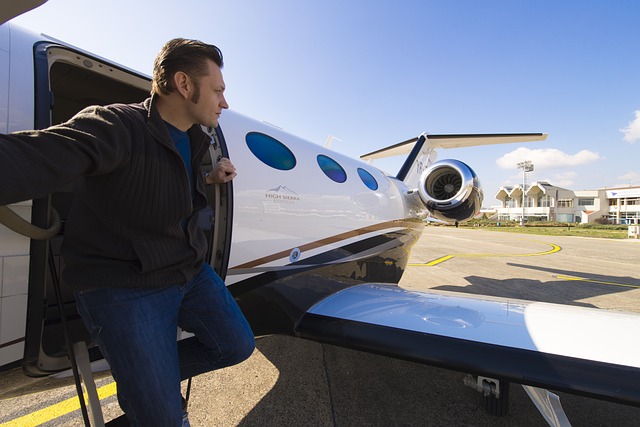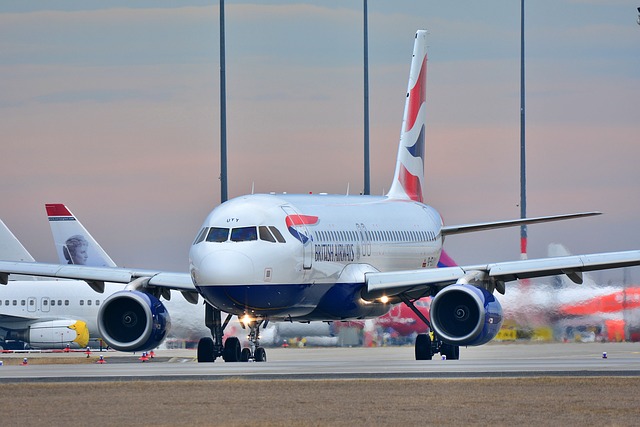Aviation training options for future airport employees in Munich
Individuals interested in a career at an airport in Munich can explore various training programs tailored for aspiring employees. These programs are designed to equip candidates with essential skills and knowledge without the necessity of prior experience. This presents an excellent opportunity to embark on a fulfilling career in the aviation sector.

What training programs are available for aspiring airport employees in Munich?
Munich offers a diverse range of aviation training programs catering to different career paths within the airport ecosystem. The Munich Airport Academy provides specialized courses in areas such as ground operations, passenger services, and airport safety. These programs combine theoretical knowledge with practical experience, often including on-site training at Munich Airport facilities.
For those interested in technical roles, the Lufthansa Technical Training center offers specialized programs for aircraft maintenance technicians and engineers. These courses comply with European Union Aviation Safety Agency (EASA) regulations and prepare students for certification examinations.
The DFS Aviation Academy in Munich provides air traffic control training, which involves simulator-based instruction and comprehensive theoretical education. This program prepares candidates for the demanding role of managing aircraft movements in one of Germany’s busiest airspaces.
Additionally, several vocational schools (Berufsschulen) in Munich offer dual education programs in airport logistics, aviation management, and customer service. These programs typically combine classroom learning with practical apprenticeships at airport facilities, allowing students to gain valuable experience while studying.
What qualifications are needed to start aviation training in Munich?
Qualification requirements for aviation training in Munich vary depending on the specific program and career path. For most entry-level programs, candidates need a minimum of a secondary school certificate (Mittlere Reife) or higher secondary education (Abitur). For technical and specialized roles, a Fachabitur (specialized higher education entrance qualification) may be preferred.
Language proficiency is crucial in the international aviation environment. Most training programs require strong German language skills (at least B2 level) and good English proficiency (typically B1-B2 level). Some specialized programs, particularly in air traffic control and international customer service, may require higher English language competencies.
For technical training programs like aircraft maintenance, a background in mathematics, physics, or technical subjects is advantageous. Many programs conduct aptitude tests to assess candidates’ technical understanding and problem-solving abilities.
Air traffic control training at the DFS Aviation Academy has particularly stringent requirements. Candidates must pass medical examinations, psychological assessments, and demonstrate strong spatial awareness, multitasking abilities, and stress management skills.
For management-oriented programs, some institutions may prefer candidates with previous work experience or relevant academic backgrounds in business, logistics, or hospitality.
How long do aviation training programs typically last in Munich?
The duration of aviation training programs in Munich varies significantly based on the specialization and level of qualification sought. Entry-level service positions such as check-in agents or ground handlers typically require 3-6 month training programs that focus on specific operational procedures, customer service skills, and safety protocols.
Vocational training programs (Ausbildung) in airport operations, aviation management, or air cargo logistics generally follow the standard German dual education model, lasting approximately 2-3 years. These programs alternate between theoretical instruction at vocational schools and practical training at airport facilities or aviation companies.
Technical training for aircraft maintenance technicians typically takes 3.5-4 years to complete, including both classroom instruction and extensive hands-on training. The program follows EASA regulations and prepares students for licensing examinations.
Air traffic control training through the DFS Aviation Academy involves a multi-stage process lasting approximately 3-4 years in total. This includes an initial selection phase, basic training, simulator training, and on-the-job training under supervision before controllers receive their full certification.
For those pursuing academic qualifications, several universities and universities of applied sciences (Hochschulen) in the Munich area offer bachelor’s and master’s programs in aviation management, aerospace engineering, or air transport logistics. Bachelor’s programs typically require 3-4 years of full-time study, while master’s programs add an additional 1.5-2 years.
Training providers and program comparison
Several established institutions provide aviation training in Munich, each with specific focus areas and program offerings. The following table provides an overview of the main training providers and their key programs:
| Training Provider | Main Programs | Program Duration | Key Features |
|---|---|---|---|
| Munich Airport Academy | Ground Operations, Passenger Services | 3-6 months | On-site training at active airport facilities |
| Lufthansa Technical Training | Aircraft Maintenance, Avionics | 3.5-4 years | EASA certification preparation, advanced technical facilities |
| DFS Aviation Academy | Air Traffic Control | 3-4 years | High-tech simulators, specialized selection process |
| IHK München | Aviation Management, Airport Logistics | 2-3 years | Dual education system with partner companies |
| Hochschule München | Bachelor in Aviation Management | 3.5 years | Academic degree with industry placements |
| TUM (Technical University Munich) | Aerospace Engineering | 3-4 years (Bachelor) | Technical focus with research opportunities |
Prices, rates, or cost estimates mentioned in this article are based on the latest available information but may change over time. Independent research is advised before making financial decisions.
Career prospects after completing aviation training
Graduates of aviation training programs in Munich can pursue various career paths within the airport ecosystem. Munich Airport employs over 38,000 people across different functions, from passenger services and security to technical maintenance and management positions. The specific career trajectories depend largely on the type of training completed.
Those who complete ground operations training can work in roles such as ramp agents, baggage handlers, or de-icing specialists. Passenger service graduates typically find positions at check-in counters, boarding gates, or in VIP services. Technical training graduates can pursue careers as licensed aircraft maintenance technicians or specialized avionics experts.
Air traffic control graduates usually continue their careers with DFS (Deutsche Flugsicherung), the German air navigation service provider, starting with positions at smaller airports before potentially advancing to major facilities like Munich Airport. Management program graduates can find opportunities in airline operations, airport administration, or aviation consulting.
The aviation industry in Munich, while competitive, continues to need qualified professionals across various specializations. Many training programs have established partnerships with employers, facilitating the transition from education to employment through internships and practical training phases.




